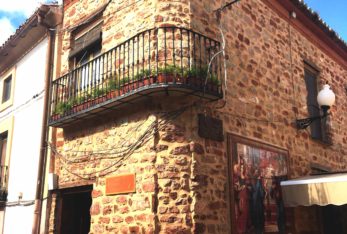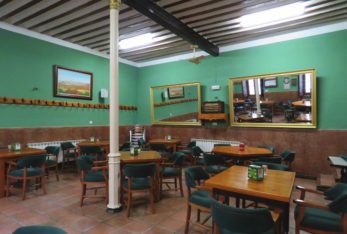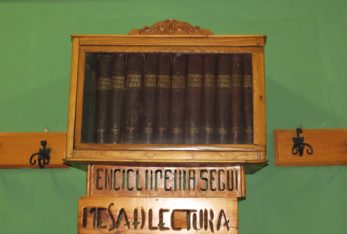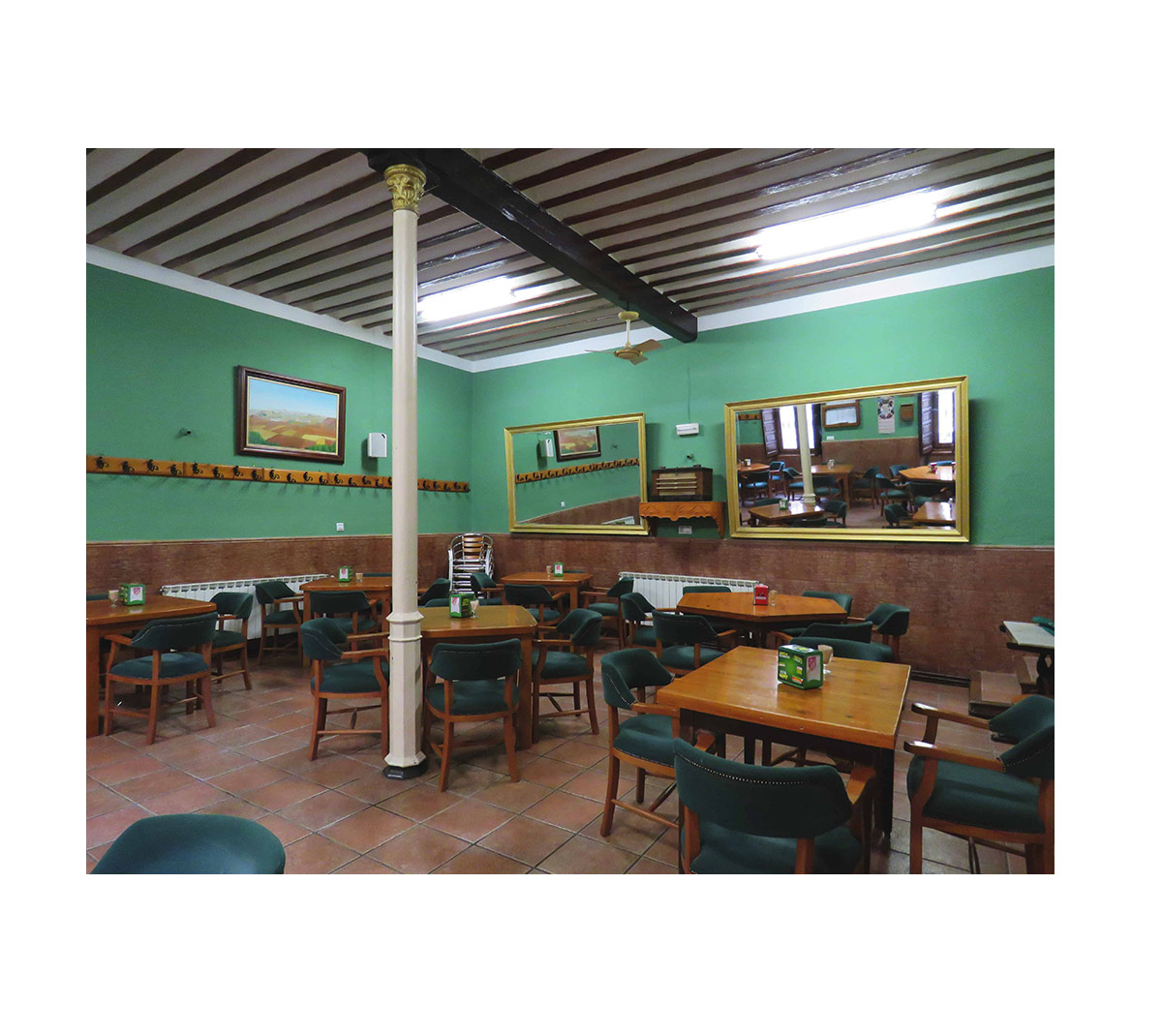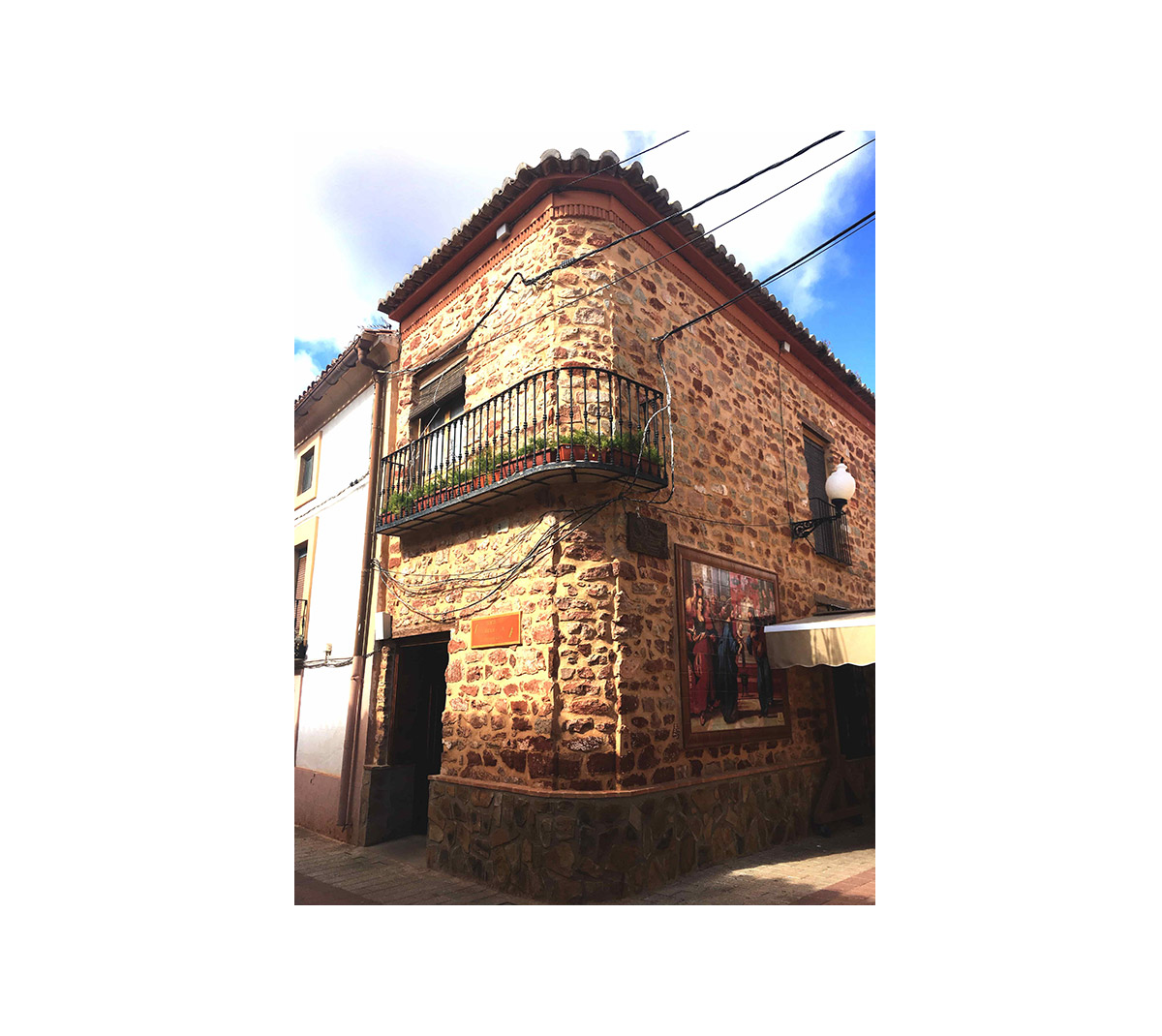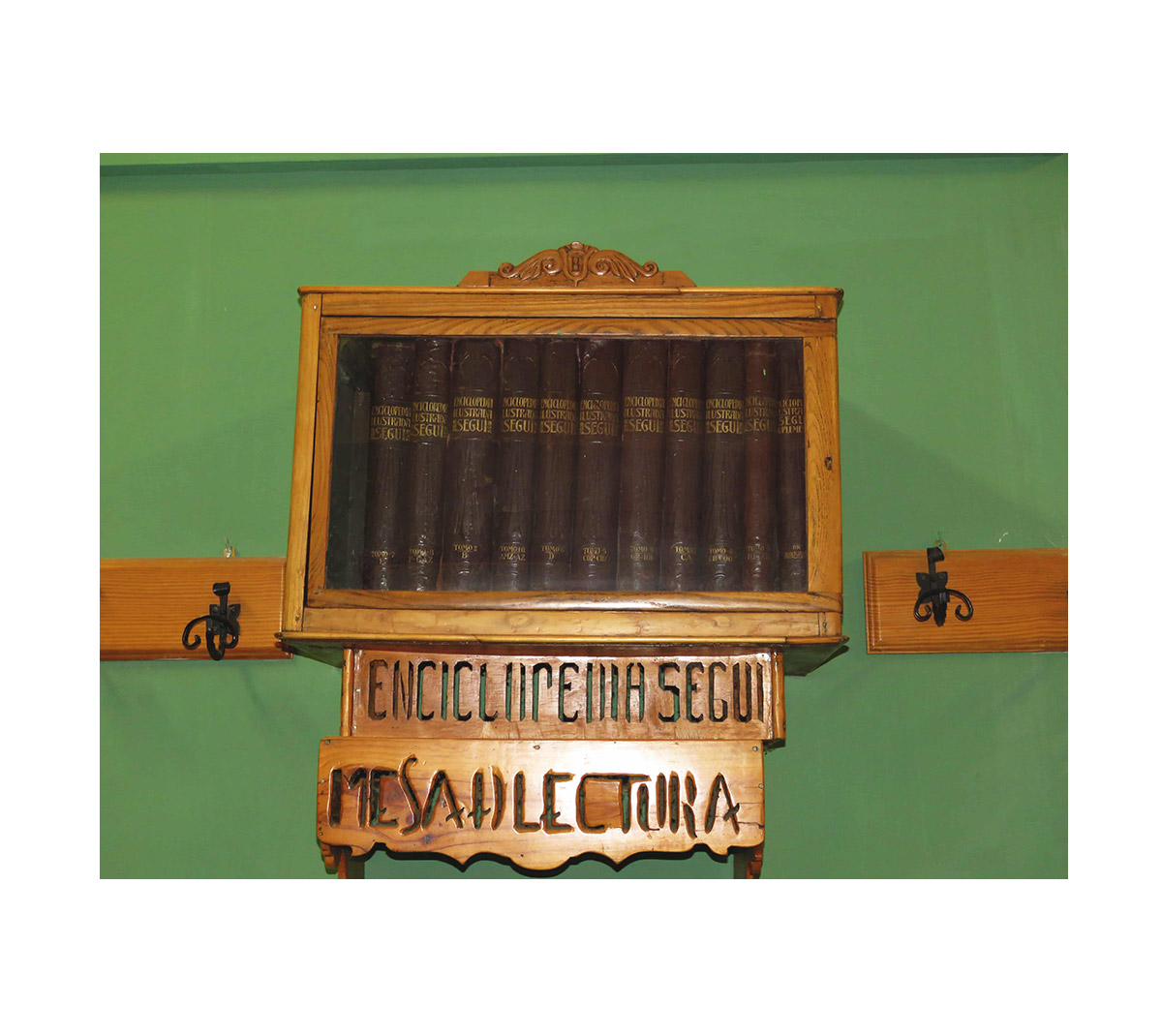Labradores’ Casino
The Casino de Labradores, formerly called “Círculo la Amistad”, is an association with over one hundred years of history, which has its headquarters in Mayor street, next to the Ermita de los Remedios.
The building in which it is located is built in moliz stone, like the main buildings of Almedina. For the characteristics of the factory, in this case, sillarejo, as well as for the knowledge of the history of Almedina, most likely, the material to build this building was extracted from the medieval walls of Almedina.
Inside, on the ground floor, appears the noble room of the building, of considerable dimensions. In the center of it, there is a single pillar of metal foundry of circular section with octagonal base and Corinthian capital. On it, a beam of mobila pine wood rests.
Outside, a balcony appears on the corner, from which saetas have been singing in the Entierro de Cristo (Good Friday at night) for decades, giving rise to one of the most typical and emotional scenes of the Holy Week in Almedina.
The room has the original mirrors, the wall clock and the old radio, next to which the members crowded; as well as with the different tables of games typical of this type of buildings. The Illustrated Encyclopedia Seguí deserves special mention: “Universal Dictionary with all the voices and locutions used in Spain and in Latin America”, with 14 volumes published in 1910 in the city of Barcelona. This encyclopedia is stored in a piece of furniture designed for this purpose by one of the Casino members.
Outside, a balcony appears on the corner, from which saetas have been singing in the Entierro de Cristo (Good Friday at night) for decades, giving rise to one of the most typical and emotional scenes of the Holy Week in Almedina.
Finally, we can see in the façade, a reproduction in natural-size pottery, of the oil Presentación de Jesus al Templo, which is part of the outdoor Museum of Fernando Yáñez de la Almedina; as well as a plaque commemorating the third centenary of the death of Miguel de Cervantes, which appears in all the towns throughout the province of Ciudad Real.
